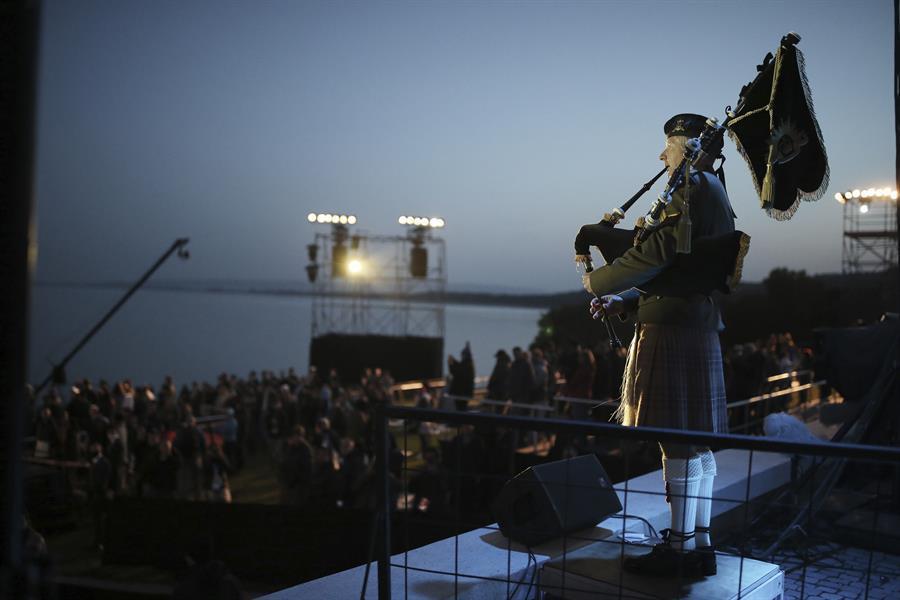
Travelers from Australia and New Zealand joined Turkish and other nations’ dignitaries at the former World War I battlefields at Gallipoli for a solemn service at dawn on April 25 to remember troops killed during an unsuccessful British-led attack that aimed to take the Ottoman Empire out of the war.
As the sun rose, participants held a minute of silence to reflect on the sacrifices of tens of thousands of soldiers from the Australia and New Zealand Army Corps, known as Anzacs, who landed on the beaches at Gallipoli, in northwest Turkey.
“At this time 107 years ago, on ships that covered the ocean off this tiny bay, thousands of Australians and New Zealanders were preparing to land on this rugged coast,” New Zealand army chief, Maj. Gen. John Boswell, said during the ceremony. “For all but a few, this was to be the first experience of the horrors of combat.”
“Most were convinced that, as one New Zealand soldier wrote in his story: ‘It will be the greatest day in our lives.’ The sunrise they witnessed that day was for all too many to be the last they ever saw,” he continued. “Across our countries, home after home was plunged into mourning.”
The Gallipoli campaign aimed to secure a naval route from the Mediterranean Sea to Istanbul through the Dardanelles, and knock the Ottomans out of the war. The April 25, 1915, landings marked the start of a fierce battle that lasted for eight months.
More than 44,000 Allied soldiers and 86,000 Ottoman soldiers died. The allies failed to reach their goal in the face of Ottoman resistance.
Gallipoli is considered to be an important turning point in the history of modern Turkey. It was at Gallipoli that Mustafa Kemal Atatürk rose to prominence as a commander of the Turkish forces and went on to lead Turkey’s War of Independence and found the Turkish Republic.
On Monday, hundreds of Turkish students marched along a 5-kilometer (3-mile) track to honor the soldiers of the Turkish 57th Infantry Regiment, who were among the first to defend against the Gallipoli landings.
Ataturk- who was Lt.Col. Mustafa Kemal at the time- is known to have commanded the regiment: “I do not order you to attack, I order you to die.”
Among those who made it to the ceremony was 27-year-old Taylor Murphy from Victoria, Australia, who said the pros of being at Gallipoli "outweighs the cons of the pandemic.”
“It feels quite surreal to be here,” she said. “We are feeling quite emotional.”
In Australia’s largest city, Sydney, downtown Martin Place was filled to capacity with tens of thousands at its dawn service. Prime Minister Scott Morrison and deputy opposition leader Richard Marles acknowledged Ukraine’s fight for freedom when they spoke at a service in the northern city of Darwin, which was devastated by Japanese bombing during World War II.
Australia did not restrict the numbers attending its commemorations for the first time during the pandemic. The service in Auckland, New Zealand, was initially planned to be closed to the public, but a veterans’ association intervened and a smaller-than-usual crowd was allowed to attend. A Ukrainian flag was flown above the Auckland War Memorial Museum ceremony.
Monday was the first such commemoration of casualties of all wars since both Australia and New Zealand withdrew troops from Afghanistan last year.
The tragic fate of troops from Australia and New Zealand in the Gallipoli campaign is believed to have inspired the two nations to carve national identities distinct from the British. Anzac Day is marked as a coming of age for the two nations.